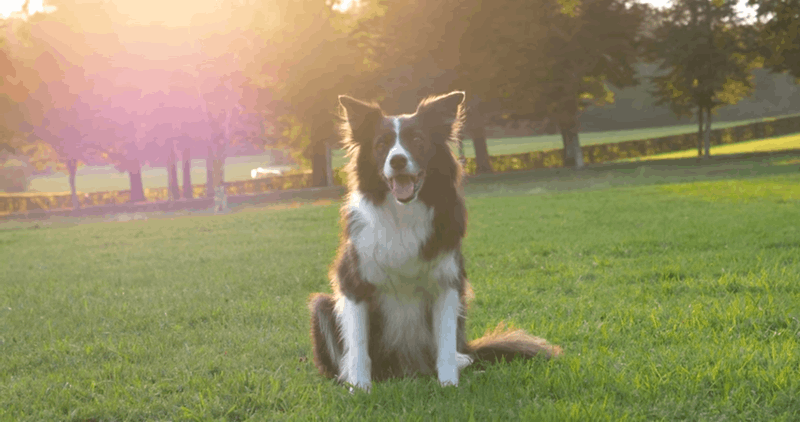No products in the cart.
How long does it take dogs to digest their food? Understanding this fundamental aspect of canine physiology is key to ensuring our furry friends’ health and happiness. The fascinating world of canine digestion will be explored in this blog. We will delve into the factors that influence digestion time and offer tips to promote optimal digestive health for your beloved pet.
Understanding the Dog Digestive System

The canine digestive system is a complex network of organs working together to break down food and absorb nutrients efficiently so it is important for pet owners to understand this system. It is a helpful action that ensures their furry friends stay healthy and happy.
The digestive system functions include:
- Mouth: Begins the process of digestion through chewing and saliva production.
- Esophagus: Transports food from the mouth to the stomach through muscular contractions.
- Stomach: Secretes gastric juices to break down food into smaller particles.
- Small intestine: Absorbs nutrients from digested food into the bloodstream.
- Large intestine (Colon): Absorbs water and electrolytes, forming feces for elimination.
- Pancreas: Produces enzymes to aid in digestion and regulates blood sugar levels.
- Liver: Produces bile to aid in fat digestion and detoxifies harmful substances.
Understanding how each component functions enables pet owners to recognize signs of digestive issues and take appropriate measures to maintain their dog’s digestive health.
How Long Does It Take Dogs to Digest Their Food?
It can take dogs 4 to 12 hours to digest their food. But it usually takes a dog 8 to 10 hours to digest a meal completely. To ensure your dogs maintain a healthy digestive system, please monitor their digestion and feed habits.
Factors Affecting Dog Digestion Time
Understanding factors affecting dog digestion time is essential for ensuring their overall health and well-being. Here are some things that we should consider
- Breed and size: Different breeds and sizes of dogs have varying metabolic rates and digestive capabilities, with smaller breeds typically digesting food faster than larger breeds.
- Age: Puppies generally have faster metabolism and digestion rates compared to adult dogs, while older dogs may experience slower digestion as their metabolism slows down.
- Type of food: The type of food consumed, such as raw or processed diets, can impact digestion time, with raw or fresh food diets often digesting faster than processed kibble.
- Health status: Dogs with digestive issues or medical conditions may experience slower digestion, highlighting the importance of addressing any underlying health concerns.
- Feeding habits: Feeding frequency, portion sizes, and eating speed can all affect digestion time, with smaller, more frequent meals promoting faster digestion.
- Hydration: Adequate hydration is crucial for proper digestion, as water helps facilitate the breakdown and absorption of nutrients in the digestive tract.
- Exercise level: Regular exercise can promote gastrointestinal motility and digestion, leading to more efficient digestion in active dogs.
- Individual variability: Each dog is unique, and factors such as genetics, metabolism, and overall health can influence digestion time, emphasizing the need for personalized care and attention.
How do Dogs Digest Their Food?
To understand more the process that dogs go through to digest their food, please consider this concise explanation:
- Mouth: Food is chewed and mixed with saliva, which contains enzymes that start breaking down carbohydrates.
- Esophagus: Food travels down the esophagus to the stomach through rhythmic contractions.
- Stomach: Food mixes with gastric juices, including digestive enzymes and hydrochloric acid, forming a semi-liquid substance called chyme.
- Small intestine: Chyme moves to the small intestine, where enzymes from the pancreas and bile from the liver further break down nutrients for absorption into the bloodstream.
- Absorption: Nutrients are absorbed through the walls of the small intestine into the bloodstream.
- Large intestine: Water and electrolytes are absorbed in the large intestine, and waste material forms into feces.
- Defecation: Feces are eliminated through the anus during defecation.
This simplified breakdown highlights the key steps in the digestion process for dogs, from chewing to waste elimination. Understanding this process can help pet owners ensure their dogs’ digestive health.
How is a Dog’s Digestive System Different from Humans?

Exploring the contrasting features of a dog’s digestive system and a human’s offers valuable insights into their respective dietary needs and digestive processes.
| Aspect | Dog Digestive System | Human Digestive System |
| Teeth | Designed for tearing and grinding | Designed for cutting and grinding |
| Stomach Capacity | Smaller | Larger |
| Digestive Enzymes | Limited | More diverse |
| Digestion Time | Faster | Slower |
Understanding these differences can help pet owners make informed decisions about their dog’s diet and overall digestive health.
How to Improve Dog’s Digestive System?

Providing a balanced diet with easily digestible ingredients is so crucial to improve your dog’s digestive system. Transition to new foods gradually to prevent upset, and consider incorporating fiber-rich foods like pumpkin or sweet potatoes. Ensure regular exercise to promote gut health, monitor treat intake, and provide access to fresh water. Probiotics or digestive supplements can also aid digestion, with guidance from your veterinarian.
Tips for Promoting Healthy Dog Digestion
Tips for promoting healthy dog digestion include:
- Feed smaller, more frequent meals rather than one large meal.
- Transition to new foods gradually to avoid digestive upset.
- Incorporate fiber-rich foods like pumpkin or sweet potatoes into their diet.
- Monitor treat intake, as excessive treats can disrupt digestion.
- Ensure your dog gets regular exercise to aid digestion and maintain a healthy weight.
- Consider adding probiotics or digestive enzymes to their diet, as recommended by your vet.
- Prevent dehydration and aid digestion by providing access to clean, fresh water at all times.
By implementing these tips, you can help promote optimal digestive health for your furry friend and ensure they lead a happy and comfortable life.
What is the Best Dog Food for Digestive Issues?
Individual dog’s specific needs, sensitivities, and underlying health conditions are the factors that can affect the best dog food for digestive issues. However, several options may be beneficial:
- Limited ingredient diets (LID): Simplifies digestion by containing minimal ingredients, reducing the risk of triggering food sensitivities.
- Grain-free formulas: Can be beneficial for some dogs with digestive issues by eliminating potentially difficult-to-digest grains, though not suitable for all dogs.
- Sensitive stomach formulas: Specifically designed to be easily digestible and support dogs with sensitive stomachs.
- High-quality, easily digestible ingredients: Look for dog foods with quality proteins like chicken, turkey, or fish and avoid artificial additives or fillers.
- Veterinary prescription diets: Tailored to address specific digestive issues under the guidance of a veterinarian, offering precise nutritional support.
Before making any changes to your dog’s diet, getting advice from a veterinarian is so important. They can evaluate your dog’s health history, conduct any necessary tests, and provide personalized recommendations for the best food to manage their digestive issues effectively.
Conclusion
Understanding “how long does it take dogs to digest their food” is crucial for their well-being. Typically, dogs digest their food within 8 to 10 hours, although factors like food type and the dog’s size can influence this timeframe. Monitoring digestion and consulting with a veterinarian ensure optimal health for your pet.
Hello, I am Hazel Bennett, an experienced copywriter specializing in the fascinating topic of CBD for dogs. With a passion for pet wellness and extensive knowledge of CBD’s potential benefits, I am here to provide you with informative and engaging content.



